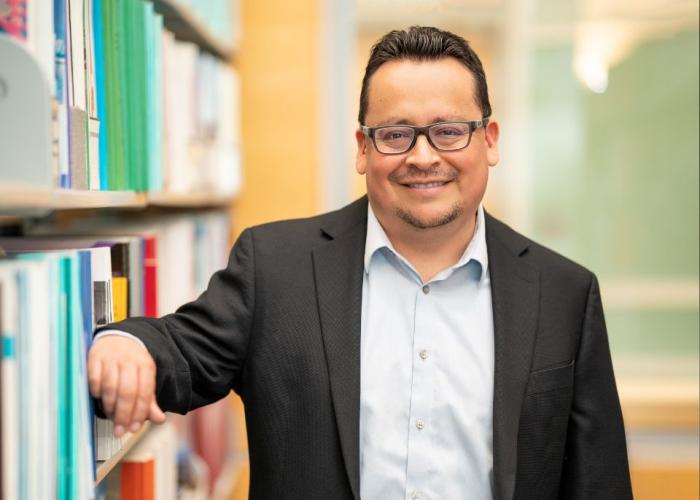
Like many of his colleagues in cancer research, Dr. Rafael Meza has a personal connection to cancer. His dad died from gastric cancer when Dr. Meza was 15 years old.
“That got me interested in how I could dedicate my career to cancer while my interests were in mathematics and statistics,” he said. “Eventually, I figured out that I could do research in cancer using my math skills, so I was really fortunate.”
Dr. Meza studied applied mathematics in Mexico, the country in which he grew up, at the University of Washington, and completed his PhD research at the Fred Hutchinson Cancer Center in Seattle, where he joined projects on lung cancer.
“Lung cancer is the number one cause of cancer death in the U.S., in Canada and globally,” he said.
So that and tobacco became his main research focuses.
Latest research highlights trends
Dr. Meza’s newest research was published by JAMA Health Forum, Dec. 1., focuses on trends in U.S. adult smoking prevalence.
For this study, Dr. Meza and the research team analyzed smoking data from more than 350,000 adults from 2011 to 2022. Smoking rates declined quickly among those aged 18 to 24 years, remained constant among those 65 and older, and increased slightly among older adults with lower incomes.
“This really highlights that more needs to be done – in this case in the U.S. – to help those older people who smoke to find ways to quit the habit, particularly for those over age 50, when more tobacco-related diseases occur,”
said Dr. Meza, listing cardiovascular diseases, tobacco-related cancers, chronic obstructive pulmonary disease and other respiratory conditions.
“Of course, it’s better never to smoke, but for people who did, the sooner they quit, the better.”
He and colleagues are currently analyzing data for smoking and e-cigarettes usage rates in Canada and for e-cigarettes for the U.S.
Smoking rates in the U.S. are higher than in Canada, but the trends are typically similar.
The opportunity to influence policy
Dr. Meza joined BC Cancer as a distinguished scientist in integrative oncology Sept. 1, 2022. He’s the coordinating principal investigator of the Cancer Intervention and Surveillance Modeling Network (CISNET)’s Lung Working Group and principal investigator of the Center for the Assessment of Tobacco Regulations (CAsToR), both of which are funded by the National Institutes of Health in the U.S.
He was a faculty member at the University of Michigan for 11 years before returning to B.C., where he had previously worked as a research scientist at the BC Centre for Disease Control from 2008 to 2011.
“Many things” drew him back to Vancouver, particularly the opportunity to make a difference.
“Being at the BC Cancer Research Institute, it’s so closely connected to the provincial health authority where you have the opportunity to influence practice and policy, and that’s really appealing to me,” he said.
Projections he worked on in the U.S. about the impact of reducing smoking prevalence informed the development of a ban on menthol cigarettes the Food and Drug Administration is about to finalize.
“Our numbers really influenced policy,” he said. “There’s nothing more rewarding than that.”
Friends, food and footie
Additional enticements for Dr. Meza, his wife and children to return to Vancouver include hiking opportunities, friends and food.
While they still haven’t found a Mexican restaurant that serves fare better than their homecooked meals, Dr. Meza learned long ago he could satisfy some of his culinary cravings by indulging in Japanese and Thai food.
And while his friends know he’s happy to spend considerable time and resources exploring new restaurants, his colleagues may not know that Dr. Meza is a “super soccer fan.”
Growing up, his family cheered for Pumas, the professional soccer team that’s associated with the largest university in Mexico where his mom taught.
“When they made it to the final during my PhD, I said, ‘I have to go’ and I left courses and everything I had to do,” he said. “In 2002, during my PhD, my now wife and friend and I saved money to go to the World Cup in South Korea and Japan.”
Final thoughts
When asked if there’s anything he wanted to add, Dr. Meza returned to the findings of his new publication.
“It’s remarkable how much smoking has declined in young folks, in the U.S., Canada. and in many other countries. Messages that smoking is harmful and that it’s not cool anymore have sunk in among younger folks,” he said.
“At the same time, there are still lots of older people who smoke, and we need to do more to help them. We must do things beyond what we’ve been doing so far with certain populations.”